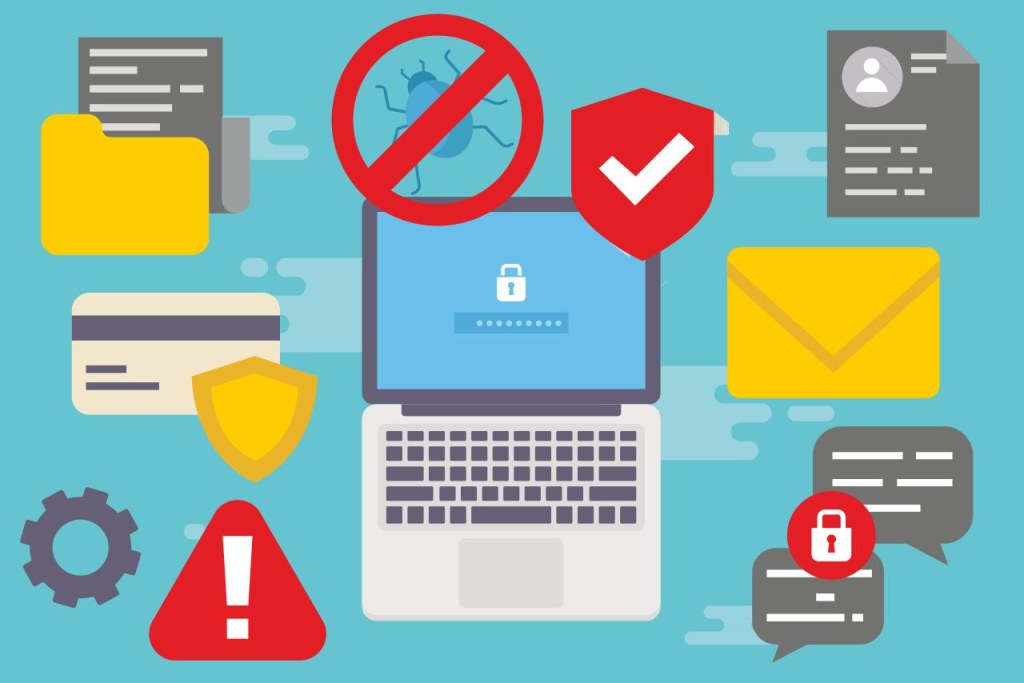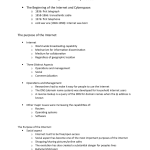Ultimate Internet Security In Computer: Safeguard Your Digital World Now!
Internet Security in Computer
Introduction
Hello Readers,
2 Picture Gallery: Ultimate Internet Security In Computer: Safeguard Your Digital World Now!


Welcome to a comprehensive guide on internet security in computer. In this article, we will delve into the importance of protecting your computer from online threats and provide you with valuable insights on how to enhance your internet security. In today’s digital age, where online activities have become an integral part of our lives, it is crucial to safeguard our sensitive information from prying eyes and malicious attacks. Whether you use your computer for personal purposes or in a professional setting, understanding internet security is paramount for a safe and secure online experience.

Image Source: vectorstock.com
In this article, we will explore the various aspects of internet security in computer, including its definition, who is responsible for maintaining it, when it is necessary, where it is applicable, why it matters, and how to effectively implement it. By the end of this guide, you will have a solid understanding of the importance of internet security in computer and be equipped with practical tips to protect yourself from online threats. So, let’s dive in!
What is Internet Security in Computer?
🔒 Internet security in computer refers to the measures taken to protect a computer system from unauthorized access, data breaches, malware infections, and other online threats. It involves ensuring the confidentiality, integrity, and availability of data stored on the computer, as well as protecting the computer itself from potential risks.
🔒 Internet security encompasses a wide range of techniques, including the use of strong passwords, encryption protocols, antivirus software, firewalls, and regular software updates. It also involves educating users about safe browsing habits, such as avoiding suspicious websites and email attachments, and being cautious while sharing personal information online.

Image Source: alert-software.com
🔒 By implementing robust internet security measures, individuals and organizations can mitigate the risks associated with online activities and prevent unauthorized access to sensitive information.
Who is Responsible for Internet Security in Computer?
👤 The responsibility for internet security in computer lies with both individuals and organizations. As an individual computer user, you are responsible for protecting your own computer from online threats. This includes installing and regularly updating antivirus software, using strong and unique passwords, and being cautious while accessing the internet.
👤 On the organizational level, companies, government agencies, and institutions are responsible for ensuring the security of their computer systems and networks. This involves implementing robust cybersecurity measures, conducting regular security audits, and educating employees about safe online practices.
👤 Additionally, internet service providers (ISPs) play a crucial role in internet security by providing secure network infrastructure and implementing measures to filter and block malicious traffic.
When is Internet Security in Computer Necessary?
⌚ Internet security in computer is necessary at all times when your computer is connected to the internet. With the increasing prevalence of cyber attacks and data breaches, no one is immune to the risks posed by online threats. Whether you are browsing the web, sending emails, or accessing online services, your computer is vulnerable to various forms of malware, phishing attempts, and hacking attacks.
⌚ It is important to note that internet security is not a one-time task but an ongoing process. With new threats emerging regularly, it is essential to stay updated with the latest security practices and technologies to effectively protect your computer and data.
Where is Internet Security in Computer Applicable?
📍 Internet security in computer is applicable in various settings where computers are connected to the internet. This includes homes, offices, educational institutions, and public places with internet access. Regardless of the location, the same fundamental principles of internet security apply.
📍 In today’s interconnected world, where remote work and online communication have become the norm, ensuring internet security is crucial for individuals and organizations alike.
Why Does Internet Security in Computer Matter?
❓ Internet security in computer matters because it helps protect your computer and data from unauthorized access, data breaches, and other online threats. Without adequate internet security measures, your computer is susceptible to malware infections, identity theft, financial fraud, and other cybercrimes.
❓ In addition to safeguarding your personal information, internet security is crucial for protecting sensitive business data, confidential client information, and intellectual property. A single security breach can have severe consequences, including financial loss, reputational damage, and legal liabilities.
❓ By prioritizing internet security in computer, you can ensure a safe and secure online experience, protect your privacy, and minimize the risks associated with online activities.
How to Implement Internet Security in Computer
🔐 Implementing internet security in computer involves a combination of technical measures and safe online practices. Here are some key steps you can take to enhance your internet security:
🔐 Use strong and unique passwords for all your online accounts. Avoid using easily guessable passwords and consider using a password manager to securely store and manage your passwords.
🔐 Install reputable antivirus software and keep it up to date to protect your computer from malware infections. Regularly scan your computer for viruses and other malicious software.
🔐 Keep your operating system, web browsers, and other software up to date with the latest security patches. Software updates often include important security fixes that can help protect your computer from known vulnerabilities.
🔐 Be cautious while accessing the internet and avoid clicking on suspicious links or downloading files from untrusted sources. Exercise caution while opening email attachments, as they can contain malware.
🔐 Use a firewall to monitor and control incoming and outgoing network traffic. A firewall acts as a barrier between your computer and the internet, blocking unauthorized access.
🔐 Regularly back up your important files and data to an external storage device or cloud storage. In the event of a security breach or system failure, having backup copies of your data can help you recover quickly.
🔐 Educate yourself about common online scams and phishing techniques. Be skeptical of unsolicited emails or messages asking for personal or financial information.
🔐 Consider using a virtual private network (VPN) when connecting to the internet, especially when using public Wi-Fi networks. A VPN encrypts your internet traffic, ensuring secure and private communication.
By implementing these measures, you can significantly enhance your internet security in computer and reduce the risks associated with online activities.
Advantages and Disadvantages of Internet Security in Computer
Advantages:
1. 🌟 Protection against malware and other online threats
2. 🌟 Safeguarding of sensitive data and personal information
3. 🌟 Prevention of unauthorized access to computer systems and networks
4. 🌟 Minimization of financial loss and reputational damage
5. 🌟 Enhanced privacy and control over personal information
Disadvantages:
1. ⚠️ Complexity and technical challenges associated with implementing effective security measures
2. ⚠️ Potential impact on computer performance, especially when using resource-intensive security software
3. ⚠️ The cost of purchasing and maintaining security software and hardware
4. ⚠️ The need for continuous monitoring and updating of security measures
5. ⚠️ The possibility of false positives, where legitimate activities are mistakenly flagged as security threats
Frequently Asked Questions (FAQs)
Q1: What is the role of antivirus software in internet security?
A1: Antivirus software plays a crucial role in internet security by detecting, preventing, and removing malware infections from your computer. It scans files and programs for known threats, blocks malicious websites, and provides real-time protection against new and emerging threats.
Q2: Can internet security in computer prevent all types of cyber attacks?
A2: While robust internet security measures can significantly reduce the risk of cyber attacks, it is impossible to completely eliminate all types of threats. Cybercriminals are constantly evolving their techniques, and new vulnerabilities may be discovered. However, implementing strong security practices can make it much more difficult for attackers to breach your computer system.
Q3: Is it necessary to use a different password for every online account?
A3: Yes, using a different password for each online account is highly recommended. If you use the same password for multiple accounts and one of them gets compromised, all your other accounts will be at risk. Using unique passwords adds an extra layer of protection to your online accounts.
Q4: Do I need to update my software regularly for internet security?
A4: Yes, regularly updating your software is essential for maintaining internet security. Software updates often include security patches that fix known vulnerabilities, making it harder for attackers to exploit them. Ignoring software updates can leave your computer exposed to potential threats.
Q5: Can internet security in computer protect against phishing attacks?
A5: Internet security measures can help protect against phishing attacks by detecting and blocking malicious websites and email attachments. However, it is important to remain vigilant and exercise caution while interacting with online content, especially when providing personal or financial information.
Conclusion
In conclusion, internet security in computer is of paramount importance in today’s digital landscape. It is crucial to protect our computers and sensitive information from online threats such as malware infections, data breaches, and hacking attacks. By implementing robust internet security measures, including using strong passwords, installing antivirus software, regularly updating software, and practicing safe online habits, we can minimize the risks associated with online activities and ensure a safe and secure online experience.
Don’t wait until it’s too late. Take action now to enhance your internet security and protect yourself from the ever-evolving cyber threats. Stay informed, stay vigilant, and stay secure!
Final Remarks
Disclaimer: The information provided in this article is for educational purposes only. While every effort has been made to ensure the accuracy and completeness of the information, no legal responsibility can be accepted for any errors or omissions. Internet security is a complex and constantly evolving field, and it is recommended to seek professional advice for specific internet security concerns.
Thank you for reading, and we hope you found this guide on internet security in computer informative and useful. If you have any further questions or concerns, feel free to reach out to us. Stay safe online!
This post topic: Technology Tutorials

